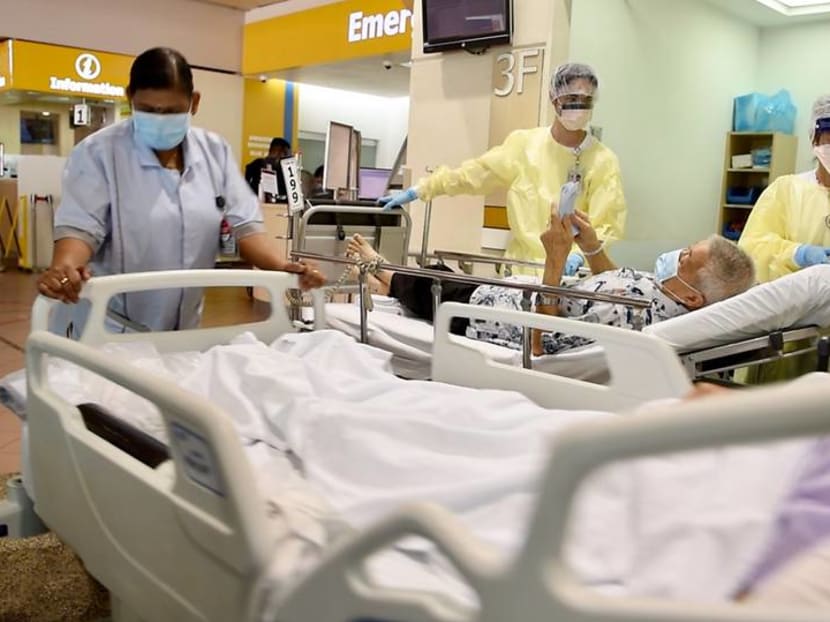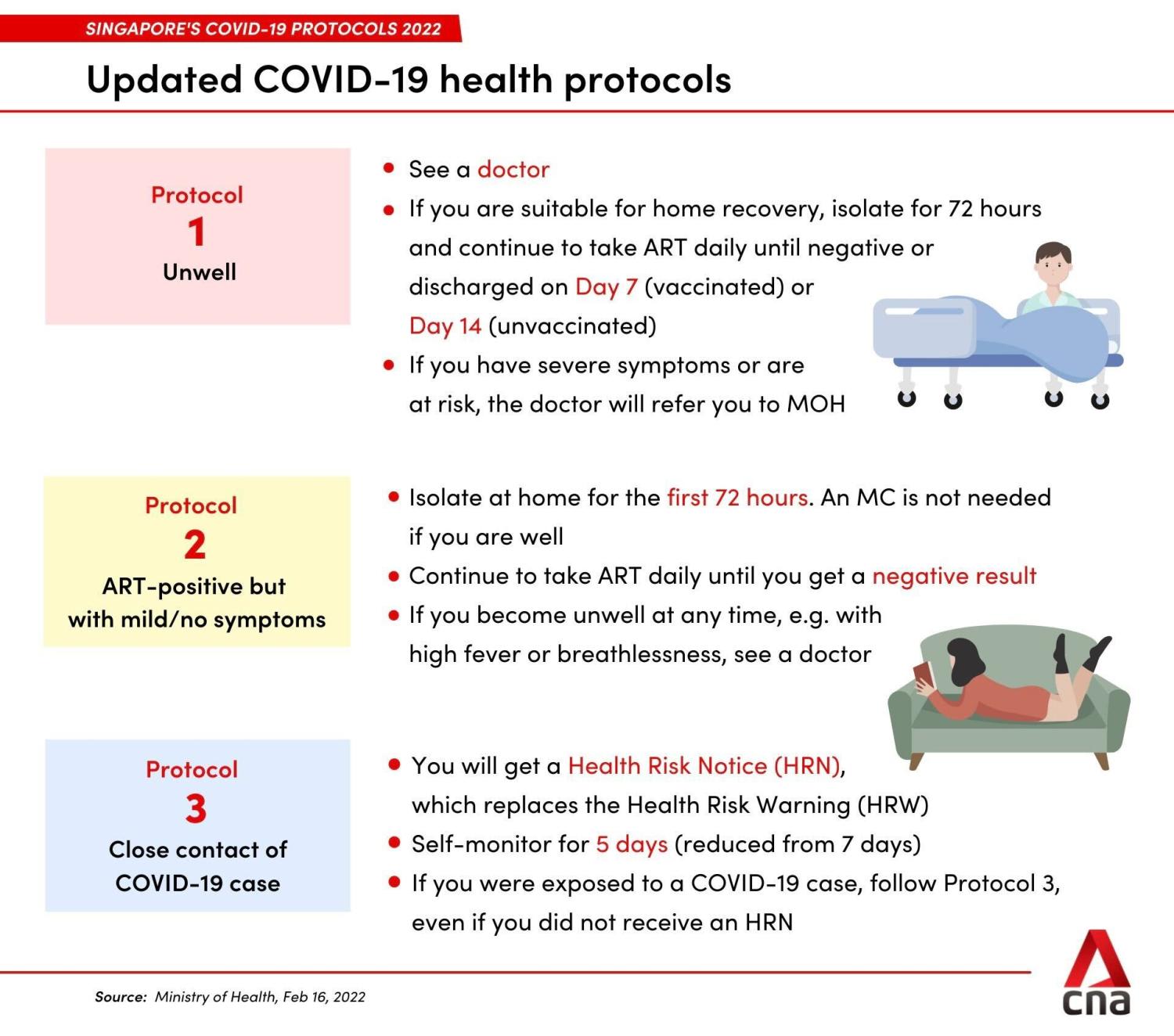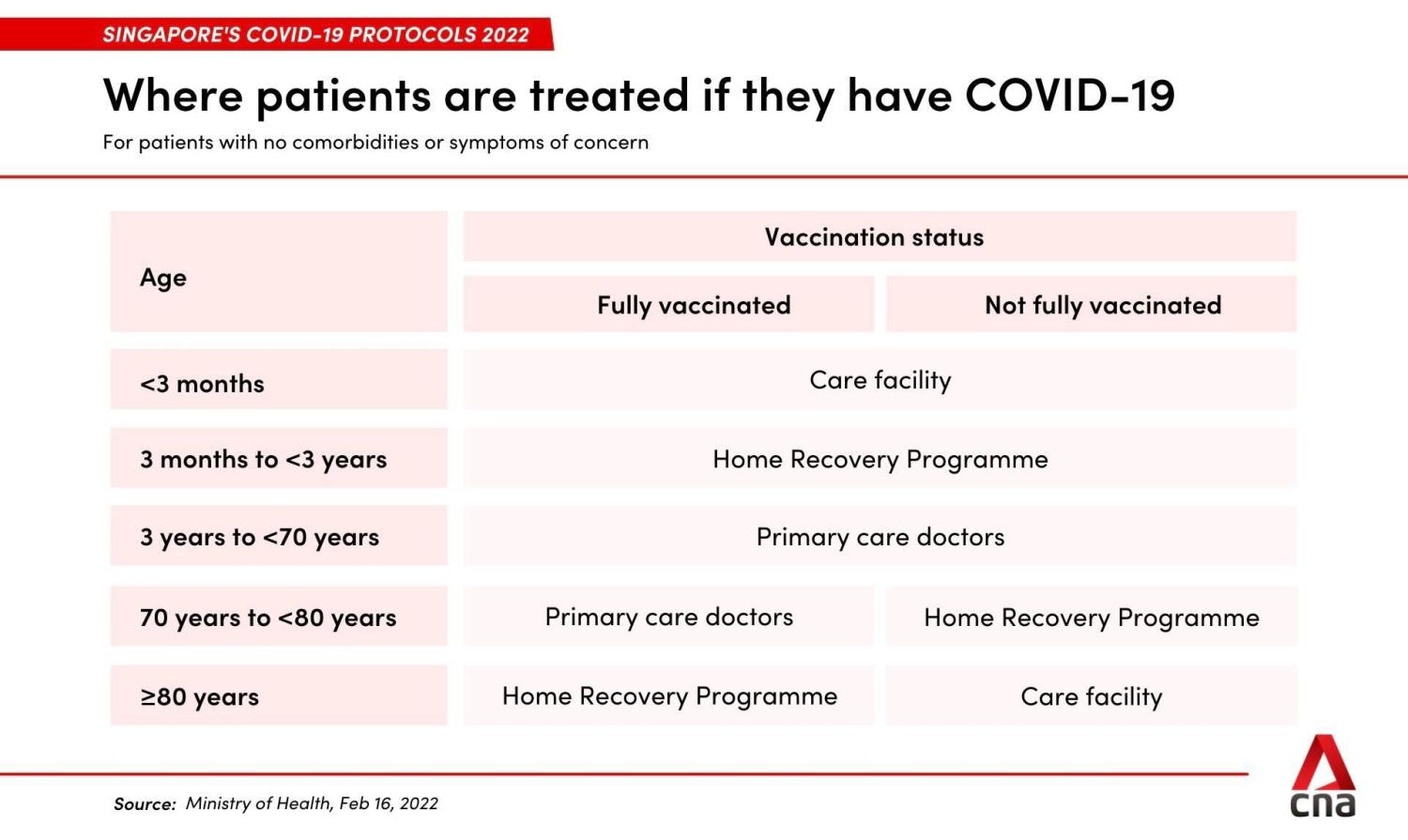FAQ: How you can help ease the pressure on the healthcare system amid surge in COVID-19 cases

Patient care in the Emergency Department at Tan Tock Seng Hospital.
SINGAPORE: As COVID-19 cases surge above the 26,000 mark on Tuesday (Feb 22), the Ministry of Health (MOH) called for "public cooperation and assistance", with healthcare workers under severe pressure to deal with the increasing caseloads.
The number of COVID-19 patients hospitalised has quadrupled in less than a month. As of noon on Tuesday, there were 1,608 people hospitalised. A month ago, that number was 401.
Hospitals, polyclinics and general practitioners are "very busy", the Health Ministry said, adding that it may take a few weeks before the transmission wave peaks and subsides.
And while the number of patients needing oxygen supplementation and intensive care unit (ICU) care is not high, there is a surge in demand for hospital beds.
MOH is ramping up hospitals' capacities, and putting patients in COVID-19 Treatment Facilities (CTFs) as much as possible, while spreading the load with private hospitals.
Healthcare manpower has also been supplemented with the SG Healthcare Corps and Singapore Armed Forces medics, and protocols have been further adjusted so more people can recover at home.
Despite this, many patients are still going to hospitals, polyclinics and GP clinics with no or mild symptoms. This adds a "significant workload" to healthcare providers who are already under "significant pressure and stress", said MOH.
In recent days, the authorities have outlined ways in which people can help ease the burden on the healthcare system. This is a summary of some of their key suggestions and recommendations:
If I test positive for COVID-19, what should I do?
People who have tested positive for COVID-19 in a self-administered antigen rapid test (ART) should see a doctor if they are feeling unwell. There is no need to rush to a hospital's Accident and Emergency (A&E) department to get tested.
Visit a doctor via private transport or ask for a telemedicine consult. The doctor will advise on the next steps.

For low-risk individuals with mild symptoms, such as a fever, cough or sore throat, the doctor will order a healthcare administered ART.
If you test positive, you will receive an SMS notifying you of the results. Provide your details and register your household members as close contacts. They will receive a Health Risk Notice.
If you are assessed by the doctor to have a mild condition, you should stop going to work and cancel your social activities.
Self-isolate at home for 72 hours and take an ART after that. If you test negative and feel well, you can resume normal activities and exit self-isolation, said the Health Ministry.
If you test positive, you should continue to self-isolate and rest. For those who are fully vaccinated, they can leave self-isolation on Day 7, from noon onwards.
Those who are partially vaccinated or unvaccinated and are aged 12 and above can only leave self-isolation on Day 14, from noon onwards.
Do I need to visit a clinic or a hospital?
MOH encourages people not to rush to a hospital's emergency department unless they are experiencing an emergency.
Those who walk into emergency departments with non-emergency conditions, including children, might be diverted to other urgent care clinics or primary care clinics.
If you require medical attention, you should consult a primary care doctor first. Some Public Health Preparedness Clinics (PHPCs) across Singapore will have their opening hours extended from this Friday to Mar 10.
Selected PHPCs will operate up to 11pm on weekday nights, weekend afternoons from 2pm to 5pm, and weekend nights, up to 11pm.
From Saturday, combined test centres will provide telemedicine consultations for symptomatic members of the public who come for testing during the weekends.
These doctors are able to provide face-to-face video consultations and prescribe and deliver medication to you. Testing and consultations will be funded by the Government during this period, said MOH.
The booking of acute respiratory testing and telemedicine consultation appointment at combined test centres can be made here.

Do I need an MC? What if I need an official record?
If you test positive for COVID-19 and require an official record for various reasons, you can book an appointment at any combined test centre or quick test centre to do a supervised self-administered ART.
It will be fully funded by the Government from Feb 16 to Mar 15.
The ART result will be sent to you via SMS and it will be updated with MOH and reflected in your HealthHub records within 30 minutes. These test centres will not issue recovery memos or medical certificates.
These memos and medical certificates are not required if people want to return to work or school, said MOH.
Manpower Minister Tan See Leng said on Tuesday that general practitioners and emergency departments reported that a "great majority" of patients who go to them have mild or no symptoms. Doctors also shared that the patients visit them for the sole purpose of getting medical certificates (MCs).
"These visits are not necessary, and risk compromising the standard of care for other patients who genuinely require medical care," said Dr Tan.
"HR professionals and employers should not request for MCs from employees who tested COVID positive.
"They should familiarise themselves with the COVID-19 health protocols, and excuse employees from returning to the workplaces for the periods required.
"They should also not require for recovery memo or medical assessment from a doctor before allowing employees to return to workplaces after the required isolation periods."
Related:
If I received a health risk notice, what should I do?
People who have been identified as close contacts of COVID-19 cases will be issued a health risk notice from MOH via SMS.
You have been identified as a closed contact based on TraceTogether records or if you are a household member of a COVID-19 positive case.
You should take an ART within 24 hours of receiving the notice. If you test negative, you can go about your daily activities.
For the next three days, you should do a self-administered ART once per day before leaving your house. If you are negative, you can continue with your normal activities. If you are positive with mild or no symptoms, you should stay at home and recover.
If you have been testing negative on the self-administered ART, do a final ART on day 5 before resuming your normal activities.
If I have symptoms but have tested ART negative, what should I do?
You can leave home and isolation if you test negative on your ART after 72 hours.
But if your symptoms worsen or do not improve, visit the doctor you had originally consulted to seek further medical attention, even if your ART is negative.
If you are unwell, you should minimise social interaction.









